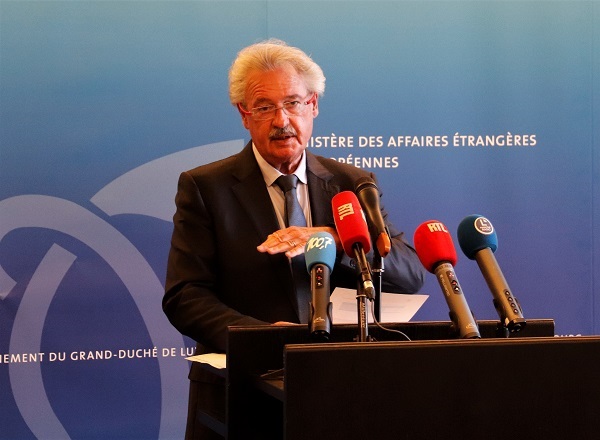 Jean Asselborn, Luxembourg's Minister of Foreign & European Affairs, Minister of Immigration and Asylum;
Credit: MAEE
Jean Asselborn, Luxembourg's Minister of Foreign & European Affairs, Minister of Immigration and Asylum;
Credit: MAEE
On Tuesday 21 February 2023, in addition to presenting statistics relating to international and temporary protection, Luxembourg's Minister of Foreign and European Affairs and Minister of Immigration and Asylum, Jean Asselborn, presented key figures concerning immigration in the Grand Duchy in 2022.
As was the case in 2021, last year saw free movement (of EU nationals) return to pre-COVID-19 pandemic levels. In 2022, the Directorate of Immigration of Luxembourg's Ministry of Foreign and European Affairs processed 17,759 registration certificates (attestations d’enregistrement) issued by municipal administrations to citizens of the European Union (EU), the European Economic Area (EEA) or Switzerland. In addition, the Immigration Directorate directly issued 478 replacement registration certificates.
As in 2021, Portugal remained the top country of origin of people who received a registration certificate (4,626 certificates, i.e. 26% of all certificates processed). France (3,721, i.e. nearly 21%) and Italy (2,388, i.e. 13.45%) retained second and third place, respectively.
In 2022, the Immigration Directorate issued 3,923 permanent residence permits (attestations de séjour permanent) to eligible EU citizens, down from 4,043 in 2021 and 4,100 in 2020, as well as 1,212 replacement permits. During the same period, the directorate issued 1,479 first residence permits (cartes de séjour) to third-country nationals, as well as family members of an EU or Luxembourg national (compared to 1,663 in 2021 and 1,521 in 2020). Among these first residence permits, 309 were issued to people who previously held another residence document, following a change in their administrative situation. The remaining 1,170 permits were issued as a first Luxembourg residence document. The main countries of origin of the individuals concerned remained largely unchanged compared to previous years, with Brazil in first place (292 permits, i.e. 19.74% of all permits issued in 2022), followed by Cape Verde (121, i.e. 8.18%). Russia took third place for the first time, with 67 permits issued (i.e. 4.53%). 90 EU family member residence cards were renewed in 2022.
The Immigration Directorate also issued 1,378 permanent residence cards in 2022 to eligible third-country nationals and family members of an EU or Luxembourg national. This figure is slightly lower than in previous years. The directorate renewed an additional 3,641 permanent residence permits, which represents a significant increase compared to previous years (1,036 in 2021; 165 in 2020). This increase in renewals, as well as the large number of replacements issued in 2022 (2,351 replacement residence cards and 432 replacement permanent residence cards), according to the Foreign Ministry, is part of the adaptation of the format of residence permits.
The immigration of third-country nationals also witnessed a post-pandemic increase: in 2022, the Immigration Directorate issued 18,861 new residence permits and replaced 311 others. In 2021, the directorate had issued 14,160 new residence permits and in 2020, 11,904 new residence permits. Most were issued in relation to employment, as well as to family members. Most third-country nationals having received a residence permit in 2022 came from India, China and Syria (also the case in 2021). Moreover, in 2022, the Immigration Directorate issued 222 documents in the context of the withdrawal of the United Kingdom (UK) from the EU (Brexit), including 207 residence documents for Luxembourg residents and fifteen work permits for cross-border workers (British nationals).








